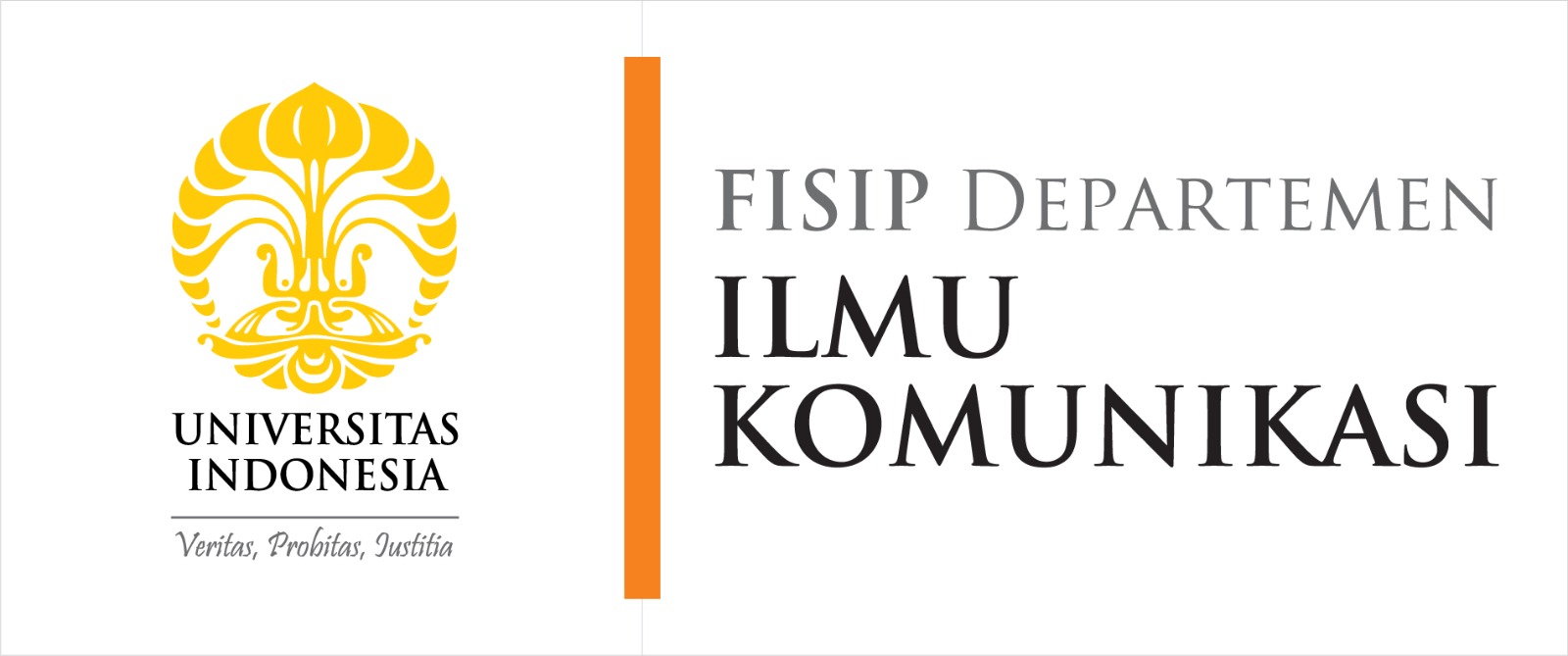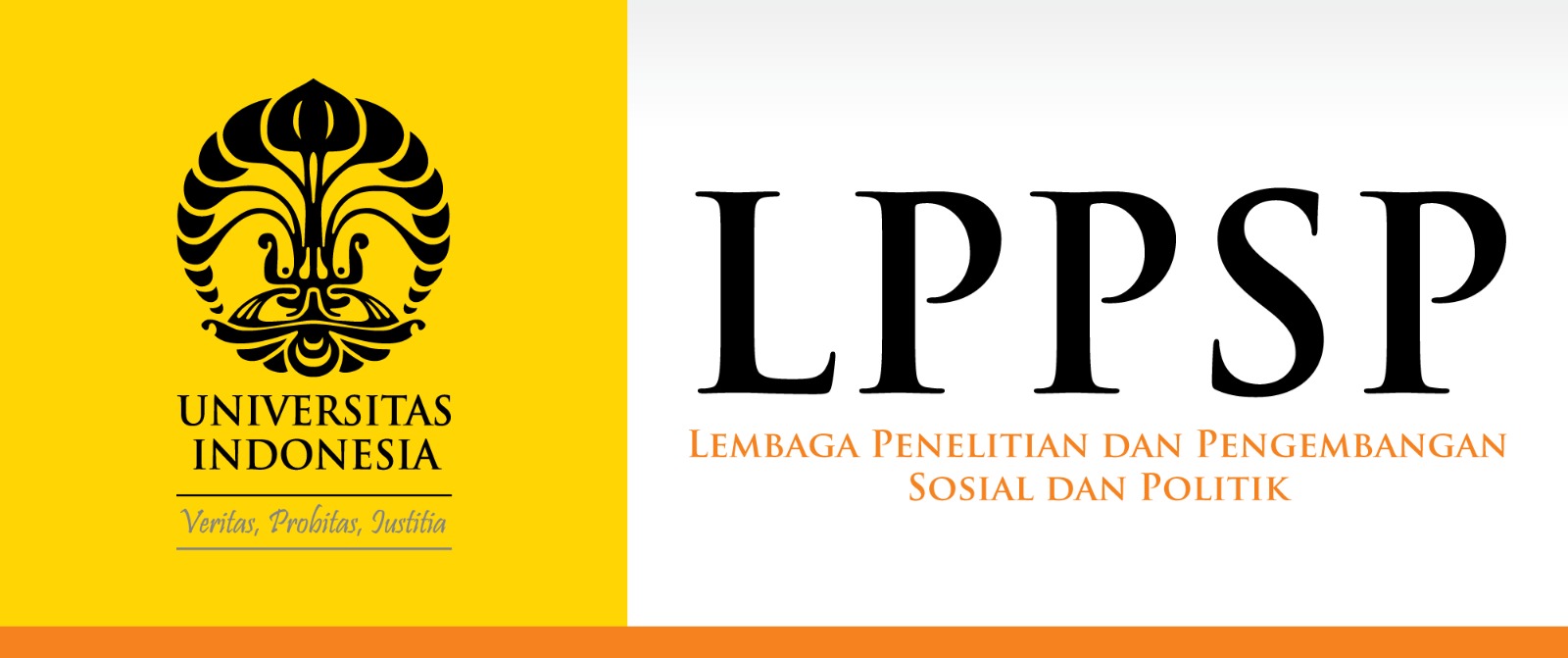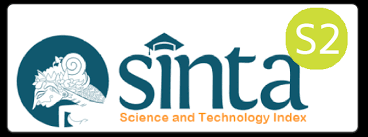JURNAL KOMUNIKASI INDONESIA
Abstract
This study explores a comparative analysis of Germany and Indonesia in the context of the Covid-19 pandemic, emphasizing the importance of addressing cross-cultural dimensions in global health crises—a field that remains underexplored. By enhancing preparedness for future emergencies, the research critically examines whether theoretical assumptions developed in Global North contexts can be meaningfully extended to Global South settings. Specifically, this study hypothesizes that political predispositions, media use, and media evaluation are associated with policy malaise, and investigates these associations in light of cross-cultural differences. Using data from Germany (n = 1,458) and Indonesia (n = 1,043), the findings reveal significant differences between the two nations in the prevalence of political predispositions, media consumption habits, media evaluations, and levels of policy malaise. Further analysis demonstrates that while assumptions developed and tested within Global North contexts are partially applicable to Global South settings, the observed effect sizes vary. Finally, the study situates its results within the distinct cultural and political contexts of each nation, offering a nuanced critique of how social constructs shape policy perceptions in non-Western societies.
Bahasa Abstract
Studi ini berusaha membandingkan evaluasi masyarakat Jerman dan Indonesia dalam penanganan pandemi Covid-19 pemerintah. Peneliti ingin ini menekankan pentingnya memperhatikan dimensi lintas budaya dalam krisis kesehatan global—sebuah bidang yang masih kurang diteliti. Dengan tujuan meningkatkan kesiapsiagaan terhadap krisis internasional di masa depan, penelitian ini mengkaji bagaimana asumsi teoretis yang dikembangkan dalam konteks mayoritas global dapat diterapkan di lingkup selatan global. Secara khusus, studi ini berhipotesis bahwa kecenderungan politik, penggunaan media, dan evaluasi media memiliki hubungan dengan rasa ketidakpuasan masyarakat terhadap kebijakan pandemi, dan melihat hubungan tersebut dalam kerangka perbedaan lintas budaya. Menggunakan data dari Jerman (n = 1.458) dan Indonesia (n = 1.043), hasil penelitian menunjukkan adanya perbedaan signifikan antara kedua negara dalam hal prevalensi kecenderungan politik, kebiasaan konsumsi media, evaluasi media, dan tingkat ketidakpuasan terhadap kebijakan. Analisis lebih lanjut mengungkapkan bahwa meskipun asumsi yang dikembangkan dan diuji dalam konteks mayoritas global masih dapat diterapkan di konteks selatan global, efek dari variabel yang diamati bervariasi. Penelitian ini berusaha mengkontekstualisasikan hasil penelitian dengan menempatkan konteks budaya dan politik yang khas dari masing-masing negara serta menawarkan kritik yang mendalam tentang bagaimana konstruksi sosial yang dibentuk dengan persepsi Barat berlaku di negara non-Barat.
References
Agustino, L. (2020). Analisis kebijakan penanganan wabah Covid-19: Pengalaman Indonesia. Jurnal Borneo Administrator, 16(2), 253–270. https://doi.org/10.24258/jba.v16i2.685
Arlt, D., Schumann, C., & Wolling, J. (2020). Upset with the refugee policy: Exploring the relations between policy malaise, media use, trust in news media, and issue fatigue. Communications, 45(s1), 624–647. https://doi.org/10.1515/commun-2019-0110
Aspinall, E., Fossati, D., Muhtadi, B., & Warburton, E. (2018, April 24). Mapping the Indonesian political spectrum. New Mandala. Retrieved April 17, 2023, from https://www.newmandala.org/mapping-indonesian-political-spectrum/
Avery, J. M. (2009). Videomalaise or virtuous circle? The International Journal of Press/Politics, 14(4), 410–433. https://doi.org/10.1177/1940161209336224
Badan Pusat Statistik. (2020, April 29). Statistik Indonesia 2020. https://www.bps.go.id/publication/2020/04/29/e9011b3155d45d70823c141f/statistik-indonesia-2020.html
Bosen, R., & Thurau, J. (2022, January 25). Chronology: How Covid has spread in Germany – DW – 12/28/2021. dw.com. https://www.dw.com/en/covid-how-germany-battles-the-pandemic-a-chronology/a-58026877
Chakravartty, P., Kuo, R., Grubbs, V., & McIlwain, C. (2018). #communicationsowhite. Journal of Communication, 68(2), 254–266. https://doi.org/10.1093/joc/jqy003
Chase, J. (2021, August 13). What right and left mean in the German election. dw.com. https://www.dw.com/en/german-election-what-do-the-terms-right-and-left-mean-if-both-cdu-and-spd-are-in-the-center/a-37601594 "
Claussen, D. S. (2020). Beware of international comparative research. Newspaper Research Journal, 41(1), 3–7. https://doi.org/10.1177/0739532919898774
Covid-19, W. R. P. (2022, December 31). Situasi Covid-19 di Indonesia (update per 31 desember 2022). covid19.go.id. Retrieved April 13, 2023, from https://covid19.go.id/artikel/2022/12/31/situasi-covid-19-di-indonesia-update-31-desember-2022
Dhanashree, Garg, H., Chauhan, A., Bhatia, M., Sethi, G., Chauhan, G. (2021). Role of mass media and its impact on the general public during the coronavirus disease 2019 pandemic in North India: An online assessment. Indian Journal of Medical Sciences, 73, 21–25. https://doi.org/10.25259/ijms_312_2020
Earl Bennett, S., Rhine, S. L., Flickinger, R. S., & Bennett, L. L. M. (1999). “Video Malaise” revisited. Harvard International Journal of Press/Politics, 4(4), 8–23. https://doi.org/10.1177/1081180x9900400402
Edelman. (2020, January 19). 2020 Edelman trust barometer. https://www.edelman.com/trust/2020-trust-barometer
Esser, F., & Hanitzsch, T. (2012). On the Why and How of Comparative Inquiry in Communication Studies. In F. Esser & T. Hanitzsch (Eds.), Handbook of Comparative Communication Research. London: Routledge, 3-22. Handbook of comparative communication research. 10.5167/uzh-76156.
Federal Statistical Office. (2020, June 19). Germany’s population increased to 83.2 million in 2019. https://www.destatis.de/EN/Press/2020/06/PE20_223_12411.html
Freedom House. (2022a). Germany: Freedom in the world 2022 country report. Retrieved April 17, 2023, from https://freedomhouse.org/country/germany/freedom-world/2022
Freedom House. (2022b). Indonesia: Freedom in the world 2022 country report. Retrieved April 17, 2023, from https://freedomhouse.org/country/indonesia/freedom-world/2022
Gravetter, F. J., & Wallnau, L. B. (2019). Statistics for the behavioural sciences. Cengage Learning Asia Pte Ltd.
Hallin, D. C., & Mancini, P. (2014). Comparing media systems: Three models of media and politics. Cambridge University Press.
Hanitzsch, T., & Berganza, R. (2014). Political trust among journalists: Comparative evidence from 21 countries. Comparing Political Communication across Time and Space, 137–156. https://doi.org/10.1057/9781137366474_9
Hanitzsch, T., Van Dalen, A., & Steindl, N. (2017). Caught in the Nexus: A comparative and longitudinal analysis of Public Trust in the Press. The International Journal of Press/Politics, 23(1), 3–23. https://doi.org/10.1177/1940161217740695
Hofstede Insights. (n.d.). Country comparison tool. https://www.hofstede-insights.com/country-comparison-tool?countries=germany%2Cindonesia
Hunger, S., Hutter, S., & Kanol, E. (2023). The mobilisation potential of anti-containment protests in Germany. West European Politics, 46(4), 812–840. https://doi.org/10.1080/01402382.2023.2166728
Ginata, A. R., Pandu, P., Handayani, N., & Ariawantara, P. A. (2022). Comparison of Covid-19 control policies between Indonesia and Australia based on the perspective of policy capacity theory. Jurnal Borneo Administrator, 18(3), 279–294. https://doi.org/10.24258/jba.v18i3.1080
Hafez, K., & Priyadharma, S. (2019). Section 1: Media and political transformation. In Media and Transformation in Germany and Indonesia: Asymmetrical comparisons and perspectives (pp. 27–30). Introduction, Frank & Timme, Verlag für wissenschaftliche Literatur.
Iyengar, S., & Kinder, D. R. (1985). Psychological accounts of agenda setting. In Kraus, S., & Perloff, R. M. (1985), Mass media and political thought: An information-processing approach (pp. 117–140). Sage Publications.
Jones, D. A. (2004). Why Americans don’t trust the media. Harvard International Journal of Press/Politics, 9(2), 60–75. https://doi.org/10.1177/1081180x04263461
Kemp, S. (2022, February 1). Digital 2020: 3.8 billion people use social media. We Are Social UK. https://wearesocial.com/uk/blog/2020/01/digital-2020-3-8-billion-people-use-social-media/
Kriesi, H., & Oana, I.-E. (2022). Protest in unlikely times: Dynamics of collective mobilization in Europe during the Covid-19 crisis. Journal of European Public Policy, 30(4), 740–765. https://doi.org/10.1080/13501763.2022.2140819
Lee, T.-T. (2010). Why they don’t trust the media: An examination of factors predicting trust. American Behavioral Scientist, 54(1), 8–21. https://doi.org/10.1177/0002764210376308
Lindsey, T., & Mann, T. (2023, May 15). Indonesia’s coronavirus fatalities are the highest in Southeast Asia. So, why is Jokowi rushing to get back to business? The Conversation. https://theconversation.com/indonesias-coronavirus-fatalities-are-the-highest-in-southeast-asia-so-why-is-jokowi-rushing-to-get-back-to-business-144059
Liu, X., & Lu, J. (2020). Comparative media studies in the digital age: Does the internet erode trust in media? A comparative study of 46 countries. International Journal of Communication, 14, 5822–5837.
Mach, K. J., Salas Reyes, R., Pentz, B., Taylor, J., Costa, C. A., Cruz, S. G., Thomas, K. E., Arnott, J. C., Donald, R., Jagannathan, K., Kirchhoff, C. J., Rosella, L. C., & Klenk, N. (2021). News media coverage of Covid-19 public health and policy information. Humanities and Social Sciences Communications, 8(1). https://doi.org/10.1057/s41599-021-00900-z
Mathieu, E., Ritchie, H., Rodés-Guirao, L., Appel, C., Giattino, C., Hasell, J., Macdonald, B., Dattani, S., Beltekian, D., Ortiz-Ospina, E., & Roser, M. (2020, March 5). Coronavirus (Covid-19) cases. Our World in Data. https://ourworldindata.org/covid-cases
Maurer, M. (2003). Mobilization or media malaise? How political media coverage changes German recipients’ satisfaction with democracy. Lecture at the 53th Annual Conference at International Communication Association (ICA) from 23.-27. May 2003 in San Diego.
Miller, J. M., & Krosnick, J. A. (2000). News media impact on the ingredients of presidential evaluations: Politically knowledgeable citizens are guided by a trusted source. American Journal of Political Science, 44(2), 301–315. https://doi.org/10.2307/2669312
Nations, U. (n.d.). Specific country data. Human Development Reports. https://hdr.undp.org/data-center/specific-country-data#/countries/DEU
Neumayer, E., Pfaff, K. G., & Plümper, T. (2023). Protest against Covid-19 containment policies in European countries. Journal of Peace Research, 002234332211353. https://doi.org/10.1177/00223433221135335
Neuman, W. R., Just, M. R., & Crigler, A. N. (1992). Common knowledge: News and the construction of political meaning. The University of Chicago Press.
Newman, N., Fletcher, R., Schulz, A., Andi, S., Robertson, C. T., & Nilson, R. K. (2021). Digital news report 2021. Reuters Institute for the Study of Journalism. Retrieved April 13, 2023, from https://reutersinstitute.politics.ox.ac.uk/digital-news-report/2021
Newman, N., Nielsen, R. K., Levy, D., Kalogeropoulos, A., & Fletcher, R. (2017). Reuters Institute for the Study of Journalism: Reuters Institute for the Study of Journalism. reutersinstitute.politics.ox.ac.uk. https://reutersinstitute.politics.ox.ac.uk/
Ng, R., Tan, Y. W. (2022). Media attention toward Covid-19 across 18 countries: The influence of cultural values and pandemic severity. PLOS ONE, 17(12). https://doi.org/10.1371/journal.pone.0271961
Norris, P. (2000). A virtuous circle: Political communications in postindustrial societies. Cambridge University Press.
Power, T., & Warburton, E. (2020). Democracy in Indonesia: From stagnation to regression. Institute of Southeast Asian Studies.
Robert Koch Institute. (2022, December 30). Coronavirus disease 2019 (COVID-19): Daily situation report. Retrieved April 19, 2023, from https://www.rki.de/DE/Content/InfAZ/N/Neuartiges_Coronavirus/Situationsberichte/Gesamt.html
Schumann, C., Ejaz, W., Rochyadi-Reetz, M., Maryani, E., & Agustina, A. (2022). International perspectives on information avoidance during the coronavirus pandemic: Comparing media evaluations and media use in Pakistan, Germany, and Indonesia. Studies in Communication and Media, 11(3), 477–507. https://doi.org/10.5771/2192-4007-2022-3-477
Schwarz, A., Seeger, M. W., & Auer, C. (2016). The Handbook of International Crisis Communication Research. John Wiley & Sons.
Syarief, S. (2022). The media landscape in Indonesia: The more things change, the more they Stay the same. ISEAS Perspective, 2022.
Tsfati, Y. (2003). Does audience scepticism of the media matter in agenda setting? Journal of Broadcasting & Electronic Media, 47(2), 157–176. https://doi.org/10.1207/s15506878jobem4702_1
Tsfati, Y., & Cohen, J. (2005). Democratic consequences of hostile media perceptions. Harvard International Journal of Press/Politics, 10(4), 28–51. https://doi.org/10.1177/1081180x05280776
United Nations. (2023). Who chief declares end to Covid-19 as a global health emergency | UN news. United Nations. https://news.un.org/en/story/2023/05/1136367
Valentino, N. A., Beckmann, M. N., & Buhr, T. A. (2001). A spiral of cynicism for some: The contingent effects of campaign news frames on participation and confidence in government. Political Communication, 18(4), 347–367. https://doi.org/10.1080/10584600152647083
Wanta, W., & Hu, Y.-W. (1994). The effects of credibility, reliance, and exposure on media agenda-setting: A path analysis model. Journalism Quarterly, 71(1), 90–98. https://doi.org/10.1177/107769909407100109
Warburton, E. (2020). Deepening polarization and democratic decline in Indonesia. In Carothers, T., & O’Donohue, A. (2020), Political Polarization in South and Southeast Asia (pp. 25-39). Carnegie Endowment for International Peace.
Washington, J., & Hasibuan, S. (2021, July 20). “It cannot be contained”: Indonesia covid deaths go unreported. Coronavirus pandemic News | Al Jazeera. https://www.aljazeera.com/news/2021/7/20/it-cannot-be-contained-indonesia-covid-deaths-go-unreported
World Health Organization. (2020, March 11). Who director-general's opening remarks at the media briefing on Covid-19 - 11 march 2020. World Health Organization. Retrieved April 13, 2023, from https://www.who.int/director-general/speeches/detail/who-director-general-s-opening-remarks-at-the-media-briefing-on-covid-19---11-march-2020
World Health Organization. (2020, October 13). Impact of Covid-19 on people's livelihoods, their health and our Food Systems. World Health Organization. Retrieved April 13, 2023, from https://www.who.int/news/item/13-10-2020-impact-of-covid-19-on-people's-livelihoods-their-health-and-our-food-systems
Zaller, J. R. (1992). The nature and origins of mass opinion. Cambridge University Press.
Recommended Citation
Garnesia, Irma
(2025)
"Effects of Political Predispositions, Media Use, and Media Evaluation on Policy Malaise among Indonesian and German People,"
JURNAL KOMUNIKASI INDONESIA: Vol. 14:
No.
1, Article 7.
DOI: 10.7454/jkmi.v14i1.1307
Available at:
https://scholarhub.ui.ac.id/jkmi/vol14/iss1/7
Appendix 1307
Included in
Comparative Politics Commons, International and Intercultural Communication Commons, Social Influence and Political Communication Commons





